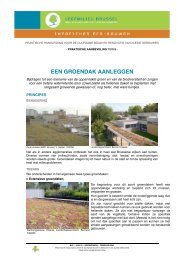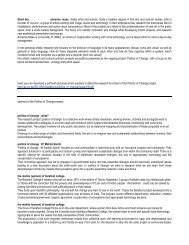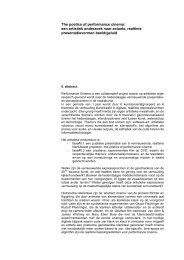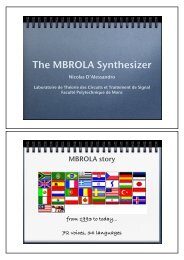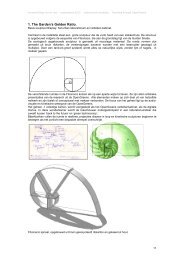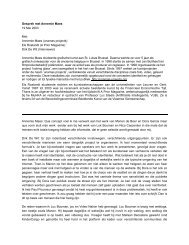MANIFESTO
MANIFESTO
MANIFESTO
You also want an ePaper? Increase the reach of your titles
YUMPU automatically turns print PDFs into web optimized ePapers that Google loves.
e measured in terms of greenhouse gas emissions in terms of CO 2 equivalents<br />
per unit land area. Ecological agriculture is found to reduce emissions by 64%. 5<br />
It also improves soil structure and stability, thus also improving water holding<br />
capacity and erosion stability. 6 Due to the permanent and diverse plant cover<br />
symbioses between plants and microorganisms (e.g., mycorrhiza, rhizobia) are<br />
becoming increasingly abundant and important for the self-sustenance of crop<br />
production. 7<br />
Contrary to general belief and prejudice, ecological organic agriculture does<br />
not yield less than conventional agriculture. A comprehensive study of 293<br />
comparisons of conventional and organic, low input agriculture demonstrated<br />
that organic agriculture yields are roughly comparable to conventional<br />
agriculture in developed countries and result in much higher yields in<br />
developing countries. 8 Additionally, it was found that more than enough<br />
nitrogen can be fixed in the soil by using green manure alone.<br />
A long-term study in the Rodale Institute in the United States found that while<br />
organic and conventional yields are comparable in years with normal rainfall,<br />
organic yields are much higher during drought years, confirming that organically<br />
managed fields are much more resistant to abiotic stresses. 9<br />
Self sufficiency of farming systems is an ideal that to-date is best represented<br />
by ecological organic farming. There are, however, ways to even further advance<br />
yields and sustainability, such as reducing tillage (minimizing energy input),<br />
including agroforestry (system stabilization and diversification), and improving<br />
animal housing systems (manure handling, diets for ruminants that lower<br />
methane emissions).<br />
Two key elements in mitigating climate change through ecological organic<br />
agriculture include: 1) favoring food production for local consumption over<br />
food production for export, and 2) using indigenous agricultural biodiversity<br />
over commercial monoculture varieties. These elements are contained in the<br />
principle of “food sovereignty” now generally accepted by the United Nation’s<br />
Food and Agriculture Organization (FAO).




